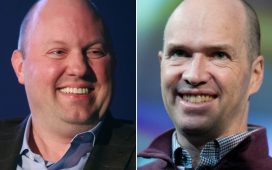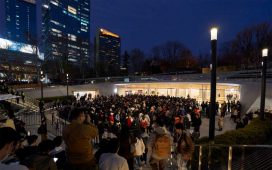- Founders Fund general partner Keith Rabois believes that San Francisco’s taxes are too high and doesn’t like what he sees as its high crime levels and failing public school system.
- But he always found it “psychologically difficult” to imagine a great company being built from anywhere else, he told Business Insider in an exclusive interview.
- That changed during the pandemic. Rabois believes that the Bay Area is losing its concentration of tech talent, perhaps permanently.
- The famed investor is now moving to Miami in December, where he hopes to distance himself from the Bay Area’s liberal political culture.
- Visit Business Insider’s homepage for more stories.
Keith Rabois has wanted to leave San Francisco for a long time. He pays taxes he believes are egregiously high with, he feels, only a failing public school system, rampant crime, and terrible commutes to show for it, he told Business Insider.
And, of course, he loathes the Bay Area’s liberal political culture, what he described as a “monoculture in perspective on the world.” Rabois is known in the Valley as someone who aligns with its libertarian investor crew among company like Peter Thiel, Joe Lonsdale, and David Sacks, though he describes himself as a conservative.
But for years, Rabois endured the Bay Area. He built his career in Silicon Valley, serving as an early exec at PayPal, LinkedIn, and Square before becoming a full-time VC at Khosla Ventures, where he made investments in unicorns like Affirm, DoorDash, and OpenDoor (the homebuying startup he helped cofound in 2014).
The outspoken investor is now a general partner at Founders Fund, where he works with his early PayPal mentor Thiel.
“If you had asked me prior to March of 2020, whether I enjoyed living in San Francisco, I would’ve said no, but professionally I needed to be here,” Rabois told Business Insider.
“And since I have very strong professional ambitions and goals, I felt like I had to compromise my personal preferences to be a successful professional,” he said.
Rabois was referring to the tremendous concentration of founder and engineering talent in the Bay Area, which has made Silicon Valley the undisputed center of the tech universe for decades. Prior to now, he said it was “psychologically difficult” for him to imagine a great startup being built anywhere else.
The pandemic, however, changed Rabois’ calculus as more tech companies embraced remote work and as founders and CEOs relocated across the country.
The Eureka moment, Rabois said, came after a few weeks in quarantine, when he realized that the pandemic was already bringing a long-lasting and massive “transformation of how people worked and lived.”
“The idea that there’s this powerful network effect in the Bay Area was already eroding,” he explained.
And that meant that the tech world was starting to see that someone could “build companies in a distributed way or in different locations,” and that an investor like himself could succeed “in a variety of different places.”
While the idea of building a tech company somewhere other than Silicon Valley isn’t new to billionaires like Bill Gates or Michael Dell, in 2020, a growing number of big-name CEOs are leaving. The newly departed include Dropbox’s Drew Houston and Splunk’s Douglas Merritt, who have moved to Austin, where they plan to make the Texas capital their permanent homes. Brex’s cofounders Henrique Dubugras and Pedro Franceschi are relocating to Los Angeles, abandoning their company’s SF lease in the process, The Information reported earlier this week.
Then there are people like Thiel and SpaceX founder Elon Musk, who famously reside in Los Angeles. Thiel and Lonsdale’s company Palantir moved to Denver, with Lonsdale himself moving to Austin.
Rabois, however, says this list only scratches the surface of a much larger exodus of tech talent from the Bay Area.
“Many of the most ambitious people on the planet have lived here,” Rabois said of his long-time home city. “But post-COVID, I think the concentration of talent has atrophied, perhaps permanently.”
Cliff Hawkins/Getty Images
Rabois is moving to Miami to regain his contrarian edge
As known as he is for his successful investments, Rabois’s reputation is also built on his outspokenness. For instance, Rabois advocated using the antimalarial drug hydroxychloroquine to treat the coronavirus, despite guidance from public health officials that the drug is ineffective against COVID-19, and has led to severe complications among patients. (There is still no conclusive evidence that the drug works against COVID-19.) And two days before the 2020 election, he boldly predicted that Trump would receive 46% of the popular vote, but with substantial support from Hispanic, Black, gay, and Jewish voters.
That self-image as a “contrarian” is also key to his success as an investor, Rabois says. One example he cited was Founders Fund’s decision to back the drone startup Anduril Industries, which is working with the US government and US Customs and Border Protection (CBP) to build a virtual border wall and was just awarded a lucrative contract with the US Air Force.
Anduril has drawn controversy from its start, in part from its founder Palmer Luckey, who sold his first company, Oculus, to Facebook for $2 billion. Luckey supported Donald Trump during the 2016 and 2020 elections and the company’s first contract in 2017 was with CBP when the agency was enforcing harsh new anti-immigrant policies. Anduril is now valued at $1.9 billion.
“Most people in San Francisco don’t believe in supporting the US Defense Department,” Rabois said. “When a company like Anduril was founded, very few people would have funded it. We found that to be a comparative, competitive advantage.”
And so Rabois says he’s moving to Miami in December not just because it’s a city with no income tax and sunny beaches. He also hopes the city will help him become a better contrarian, giving him distance from Silicon Valley’s culture and allowing him to “identify other blind spots where we can invest and earn a superior return.”
“The truth is, when you spend a lot of your time on Twitter and in Silicon Valley, even when you try, like me, to think differently, it’s challenging because all the oxygen around you is of one general arc,” Rabois said.
“Breathing fresh air might help me find new opportunities, because my brain won’t be as corrupted,” he added.
Now read:







